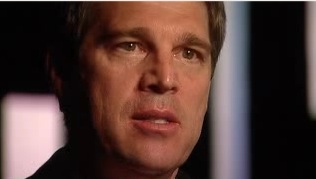Gill Rider on leadership.

Gill Rider is the Head of the Civil Service Capability Group, a part of the UK Cabinet Office. Rider has previously worked in the financial markets, healthcare and government industries. She also worked in the customer service area examining industry best practices.
The following is what I took away from watching the collection of her seven 4-minute videos on the 50 lessons website.
Competence and Confidence
Rider talks of a ‘virtuous’ circle of competence and confidence: if you feel competent than that leads to a feeling of confidence. People assume a lack of confidence means a lack of competence, meaning that you need to show and prove that you are competent through projecting confidence. Some people will misunderstand assertiveness and confidence as your being egocentric and arrogance.
Good leaders need to be good teachers
In order to be a good leader you also need to be a good teacher. You can foster this in others by getting them to teach topics outside their comfort zone. They will becoming engaged by this, enjoy the teaching, and will provide a good model for more junior members of the organization.
Rider talks of a ‘teachable point of view,’ an idea she gathered from a more well-known speaker (whose name I missed). This ‘teachable point of view’ consists of binding up ideas, knowledge and opinions to pass onto others. Junior members of the organization are ‘hungry to hear about experiences and stories.’ Leaders therefore need to confidence to go ‘out there’ and teach. Leaders who teach become fulfilled and become the most effective leaders. It improves the overall quality of work being produced and leads to a virtuous circle.
The importance of listening
Listening is a vital skill as it enables you to udnerstand what people are feeling and wanting. You can find out exactly what you want to know by careful listening. A combination of listening and asking questions is important in any dialogue; Rider quotes Mark Twain‘s advice that ‘you have two ears and one mouth – use them proportionally.’
In advance of meetings, ask people what the objectives of the meeting are and get them to formulate these into questions. It is easy to assume you know what’s going on in any situation, but it’s easy not to go beyond the superficial. Pick up signals from body language and ask questions that probe more deeply.
Don’t exclude minorities
Rider talks of her avoiding the ‘women question’ by just trying to get on with her own career and be as successful as possible. However, it struck her later in her career how little things had changed for the status of minorities at the top organizational levels.
It is difficult to appreciate, Rider says, how minorities feel when you are always part of the majority. Deliberately placing yourself in a minority situation helps you to understand how others may feel. Rider points to research that shows the more diverse an organization is, them more effective it is. Diversity is also important for perceptions of the organization in terms of being representative of communities.
The lack of ‘logic’ in Powerpoint
Rider dislikes Powerpoint as it takes the ‘energy’ out of presentations. People focus on getting the bullet points correct rather than on the overall ‘logic’ of the presentation. Rider herself gets employees to write White Papers that have argument and logic. Powerpoint doesn’t really allow for discussion and the ‘human element’ of going off at tangents.
The importance of trust
Trust is one of the most important things in the business world. Your ego and self-interest needs to be removed from the situation so you can hear where others are coming from. Trust is key to being successful in business world and comes from human beings connecting on personal as well as a professional level.
Matching behaviour to words
Rider tells an interesting story about the chairman of an organization stopping her one day when she was literally running to get to her next meeting. He explained how such behaviour would be interpreted by others and amplified as it went down the organizational hierarchy, eventually being interpreted as ‘panic’.
Rider has a nice phrase, ‘You can’t talk yourself out of what you behave your way in to.‘ Always look like you’re in control.
PS You can get access to the 50 Lessons website through the National College for School Leadership’s Leadership Library

![Reblog this post [with Zemanta]](http://img.zemanta.com/reblog_e.png?x-id=7b88124c-00fc-45c8-92f9-c767fb83e9a0)

![Reblog this post [with Zemanta]](http://img.zemanta.com/reblog_e.png?x-id=891501e3-310d-4e30-873e-ec933177be9e)



![Reblog this post [with Zemanta]](http://img.zemanta.com/reblog_e.png?x-id=6157f082-2d52-4c39-8c32-b8e4a3ca7c4f)